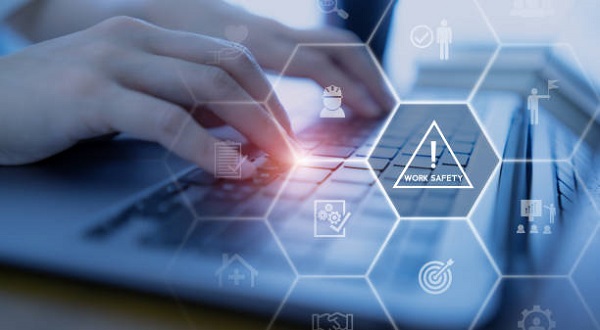The Essential Guide to Cyber Security Services

As technology continues to advance at a rapid pace, the landscape of cyber threats grows increasingly complex. From sophisticated hacking attempts to ransomware attacks, the need for robust cyber security has never been more critical. Cyber security services are designed to protect organizations from these evolving threats and ensure the safety of their digital assets. This article explores the various types of cyber security services, their significance, and considerations for choosing the right solutions for your organization.
What Are Cyber Security Services?
Cyber security services refer to a broad range of solutions and practices aimed at defending digital systems, networks, and data from cyber threats. These services are essential for safeguarding sensitive information, ensuring operational continuity, and complying with regulatory requirements. Cyber security services can be categorized into several key areas:
Key Types of Cyber Security Services
-
Threat Detection and Response
- 24/7 Monitoring: Continuous surveillance of network activity to detect and respond to suspicious behavior or potential threats in real-time.
- Incident Response: Immediate actions taken to address and mitigate the impact of a cyber attack. This includes isolating affected systems, eradicating the threat, and recovering from the incident.
- Threat Intelligence: Gathering and analyzing information about emerging threats and vulnerabilities to proactively protect against potential attacks.
-
Vulnerability Management
- Penetration Testing: Simulating cyber-attacks to identify and address security weaknesses before they can be exploited by malicious actors.
- Vulnerability Scanning: Regularly scanning systems and networks for known vulnerabilities that could be exploited.
- Patch Management: Applying updates and patches to software and systems to fix vulnerabilities and prevent exploits.
-
Security Consulting
- Risk Assessment: Evaluating an organization’s security posture to identify potential risks and vulnerabilities.
- Compliance Consulting: Assisting organizations in adhering to regulatory standards and industry requirements such as GDPR, HIPAA, and PCI-DSS.
- Security Policy Development: Creating and implementing security policies and procedures to guide the organization’s approach to cyber security.
-
Managed Security Services
- Managed Detection and Response (MDR): Outsourcing the management and monitoring of security operations to a third-party provider specializing in threat detection and response.
- Security Operations Center (SOC) as a Service: Providing comprehensive security monitoring and management through a dedicated SOC team that operates around the clock.
- Firewall Management: Configuring, monitoring, and maintaining firewalls to protect against unauthorized access and attacks.
-
Cloud Security
- Cloud Security Posture Management (CSPM): Ensuring that cloud environments are securely configured and compliant with best practices and regulations.
- Cloud Access Security Broker (CASB): Providing visibility and control over cloud applications and data to prevent unauthorized access and ensure data protection.
-
Identity and Access Management (IAM)
- Authentication and Authorization: Implementing systems to verify and control user access to systems and data, ensuring that only authorized individuals can access sensitive information.
- Single Sign-On (SSO): Simplifying user authentication by allowing users to access multiple systems with a single set of credentials.
-
Data Protection
- Encryption: Protecting data by converting it into a secure format that is unreadable without the appropriate decryption key.
- Backup and Recovery: Implementing backup solutions and disaster recovery plans to ensure that data can be restored in the event of a loss or breach.
-
Security Awareness Training
- Employee Training: Educating employees about cyber threats, safe practices, and how to recognize phishing attempts and other social engineering attacks.
- Simulations: Conducting simulated attacks to test and improve employees’ responses and awareness.
Importance of Cyber Security Services
-
Protection from Cyber Threats: Cyber security services company provide essential protection against a wide range of threats, including malware, ransomware, phishing attacks, and data breaches. This protection is crucial for maintaining the confidentiality, integrity, and availability of digital assets.
-
Regulatory Compliance: Many industries are subject to stringent regulatory requirements regarding data protection and privacy. Cyber security services help organizations comply with these regulations, reducing the risk of legal and financial penalties.
-
Operational Continuity: Effective cyber security measures ensure that business operations are not disrupted by cyber threats. This includes preventing downtime and minimizing the impact of security incidents on business operations.
-
Reputation Management: A strong cyber security posture helps protect an organization’s reputation by preventing data breaches and security incidents that could damage trust with customers and partners.
-
Risk Management: Cyber security services help organizations identify, assess, and manage risks associated with digital assets. This proactive approach to risk management helps prevent potential threats from becoming significant security issues.
Choosing the Right Cyber Security Services
When selecting cyber security services, organizations should consider the following factors:
- Expertise and Experience: Look for providers with a proven track record and expertise in handling various types of cyber threats and security challenges.
- Comprehensive Solutions: Ensure the provider offers a broad range of services that align with your organization’s specific needs and security requirements.
- Customization and Flexibility: Choose a provider that can tailor their solutions to fit your organization’s unique environment and risk profile.
- Reputation and References: Evaluate the provider’s reputation and seek references to assess their reliability and effectiveness in delivering cyber security solutions.
Conclusion
Cyber security services are essential for protecting digital assets in a rapidly evolving threat landscape. By leveraging a comprehensive range of services, organizations can safeguard their information, ensure compliance with regulations, and maintain operational continuity. Investing in robust cyber security measures is not just a precaution—it’s a critical strategy for securing your digital environment and ensuring long-term success.




